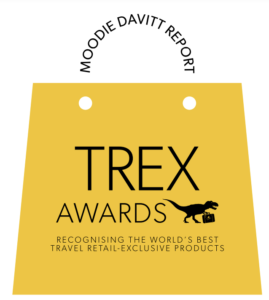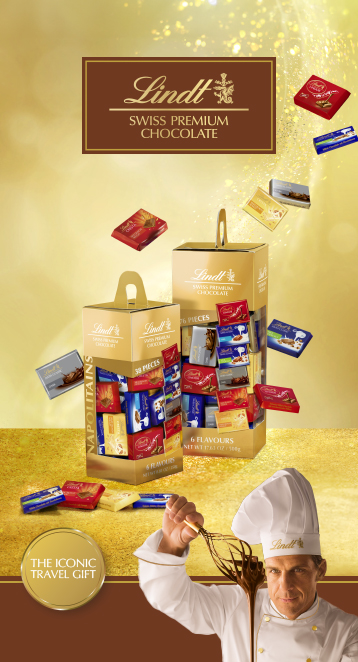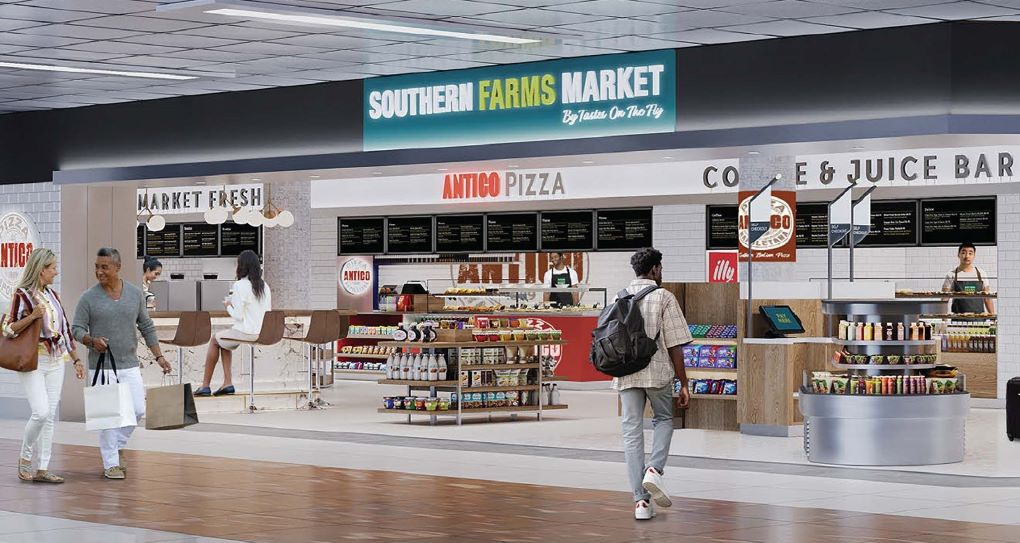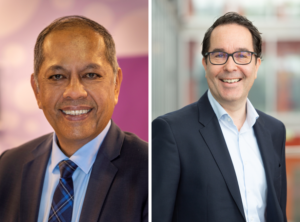
Prologue: After an illustrious career spanning more than three decades at Mondelez International (and its predecessor entities), Jaya Singh is to retire as Managing Director of Mondelez World Travel Retail (WTR) in January.
Singh has not only shaped Mondelez WTR since taking on the role in 2017 – ably navigating the division through good times and (very) bad in the shape of the COVID-19 pandemic – but also helped elevate the wider travel retail sector.
When his impending retirement was announced earlier this year, The Moodie Davitt Report wrote: “Travel retail without Jaya Singh will seem like an Oreo without its filling. For such has been his quiet influence within the channel that he will leave a giant-sized gap upon his departure.”
His leadership acumen and commitment has extended beyond Mondelez. Singh has played key roles in leading industry bodies, including stints as President of Asia Pacific Travel Retail Association (APTRA) and Tax Free World Association (TFWA). The personable, insightful and much-respected executive’s career legacy will be defined by an unflinching advocacy for innovation, collaboration and the travel retail sector’s wellbeing.
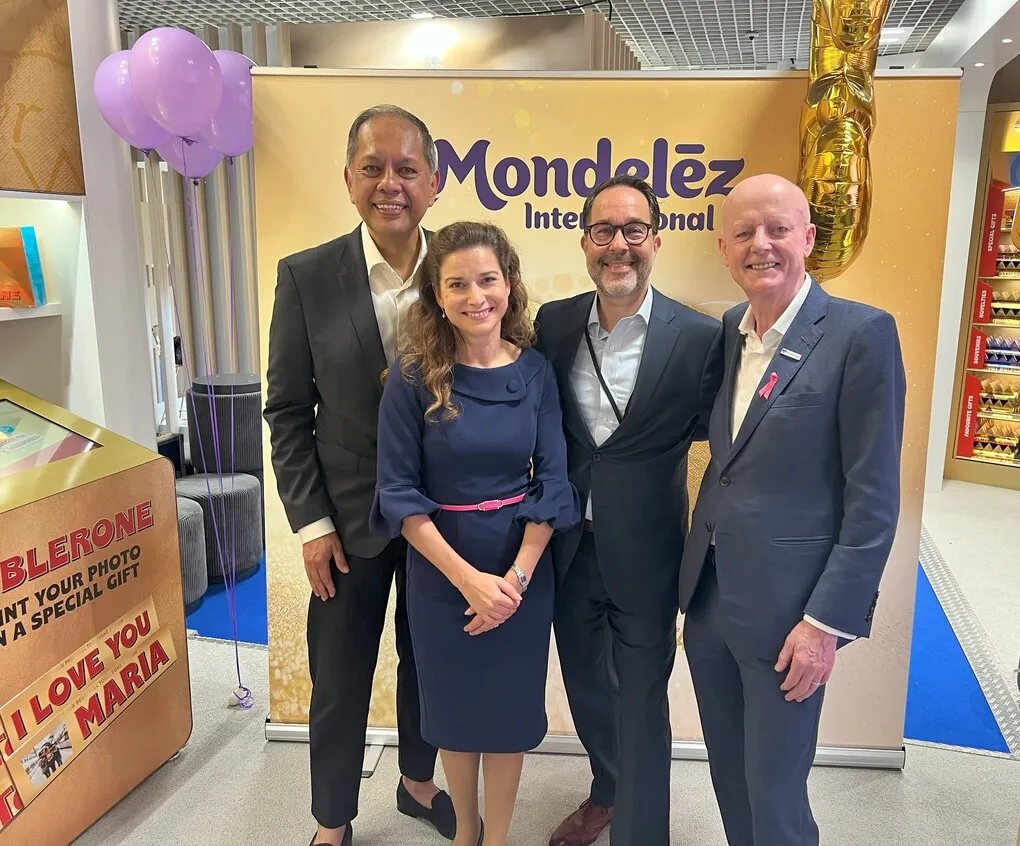
Joost Rosmuller, a seasoned and internally highly regarded leader at Mondelez International with 15 years’ group experience driving growth across multiple roles, now assumes the WTR reins in tandem with his new responsibilities as Vice President of Special Businesses.
With a proven track record of fostering sustainable development, Rosmuller brings a forward-thinking vision paired with a deep commitment to customers and teams.
In this exclusive, refreshingly candid and deeply human conversation, Singh and Rosmuller talk with The Moodie Davitt Report Founder & Chairman Martin Moodie about their respective life and business journeys, the challenges and triumphs of their careers, and their visions for travel retail’s future.
Martin Moodie: Jaya, I will begin with you as you prepare for a new chapter in life. You’ve had a long and enriching journey, both in business and outside. Tell me about that dual sojourn.
Jaya Singh (JS): There are several things going through my mind, to be honest with you. If I reflect back and ask, “How did I get into this wonderful business?” it was in 1997 and I was working in the domestic side of the business. And Markus [Gerber – the founder of Mondelez International forerunner Kraft Jacobs Suchard’s travel retail division in 1994, who sadly passed in 2022] talked to various people about me.
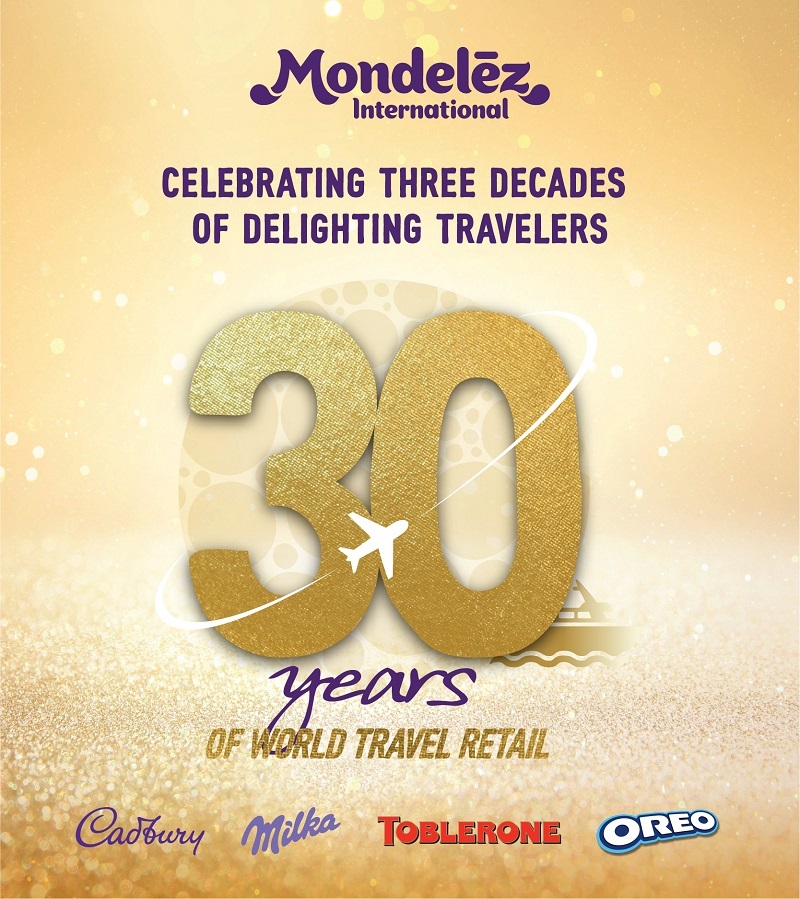
So I had a chat with him, and he said, “Would you like to join us?” I didn’t know much about the business or the industry, but I thought this is just a dream. Okay, I’ll do it for two years to get it on the CV and then I’ll just go on my happy way. But in fact it opened my eyes and my mind to a wonderful world that I never thought existed.
It wasn’t just about the business, but the wonderful ecosystem and the people that I discovered. We were doing business in a unique location that had tremendous reach towards millions of people in a concentrated state. And as I began to look more and more, I said, this is unique, and I fell in love with it.
I identify with that. I often talk of travel retail as a crossroads of humanity. It’s this diverse, constantly converging mass of people all over the world from different nationalities, socio-economic classes, races and religions.
JS: Yes, I think the industry is diverse even without recognising it. That’s another unique strength about it.
So, that was in 1997 with the intention of staying for two years. But lo and behold, it’s been a lot more years. I was talking to my wife the other night and she asked me the same question you’re asking in terms of my reflections.
I thought about it and I said if you were to ask me in a couple of sentences what the journey has been like I would say very simply that I’ve lived a dream that I never thought I would have.
And that’s a privilege, because it’s not the job that keeps you going – it’s the dream. And every day, the dream unfolds in different ways, for all the reasons that we’ve talked about.
We’ll talk about some of the people, places and moments relating to travel retail shortly but first I want to touch on your wider life journey, which has been fascinating. Let’s start with your origins and your mum and dad’s backgrounds.
JS: They’ve both passed on but my father was Indian and my mother Chinese. My father came from a village in Uttar Pradesh in the north of India. He was one of 14 children, and the British chief spoke to my grandfather in those days and said, the only way out of this place is if you send your children abroad.
It was a background of real poverty. So, he and his eldest brother left on a boat to Singapore around 1930.
Since then, he never talked about the family. So, I grew up in a situation – which I reconciled with a long time ago – where I never knew any of my cousins. I never knew any of my uncles or aunts. I am totally devoid of family on my side, which I think is also wonderful because it shapes you. It says, “This is life, this is your lot in life.”
But that’s one thing: what do you do about it? And that’s probably the reason why I’m so people-focused.
My mother came from a similar background. She was one of 16 children – contraception in those days didn’t exist. She was a nurse, and her and my father met in the hospital and got together. The difficulties in those days of an interracial marriage were extremely challenging. It was really frowned upon.
The consequence was my mother, being Chinese, was thrown out of her family. So, I knew nothing of my uncles and cousins on her side of the family either. But her sister stood kindly by her, and that’s the only piece of family I remember. That was my background.
This was before the invasion of Singapore by the Japanese. So, your parents also lived through that period?
JS: Yes. The Japanese came in 1942. They were extremely difficult times but my parents worked very hard. They instilled in me the belief that the way we can make progress in life is to work hard.
But if I really look at it, out of the roots of rejection comes the passion and the desire – not born out of bitterness or hardness – and the recognition that you have to work hard. You also have to have sensitivity and whatever you can do later in life to make somebody else’s life better, you do it.
That has been my background. And at one time I was lost. You can choose to publish this or not, but I was lost for many years because I had a lot of baggage. I didn’t get my first job in life till I was 32 years old. Before that, I was a mess.

But then I had a unique spiritual moment when I was 32. When everything had hit rock bottom, and everything I thought I had in terms of identity was stripped away. It was a personal spiritual experience. You know, this man called Jesus – I’ve talked to you about that before – and I had a personal encounter.
It changed my life. I understood the meaning of acceptance, the meaning of love, and the meaning of life. So I got saved and what followed has been a complete change in direction in life.
That’s when I first started, at 32, with the job at the company. I never left the company because I needed it, because the background anchors you. The company became my family, the industry became my family.
For me, there is no difference between family and work, because the industry is family. I’m so fortunate when I think about those difficult circumstances, to have realised that identity. Because this is not a job. To succeed in this business, in this industry, one cannot look upon it as a job. One has to look upon it as a purpose.
And that’s what gets me out of bed every day to this day.
How life shapes you, how parents shape you, and how parents’ circumstances shape you is a very interesting subject indeed. Just briefly Jaya, touch on some of the other key people who have influenced you along the way.
JS: A key person, again, at a critical juncture, is my wife. She was a church worker, and I just walked into a random church, and I saw her there.
This was after you found faith, found God?
JS: Immediately after. Where do you go when inside you’re saying you don’t have a home to go back to? So, I got up one day and said, “This particular church is over here.”
I had no money at all. At 32 years old, I had less than S$100 in the bank. I still remember I had two pairs of jeans and some worn-out T-shirts. I looked up the bus guide in Singapore and it said ‘Get this bus, number five’ – I’ll never forget. I took the bus on a Sunday and just walked into the church.
When I walked in, there was worship going on. I’d never seen worship like that. I said, “Something is alive here.” It wasn’t people just worshipping a book – the Bible or the Quran, or whatever it might be. But here was worship driven out of love.
It just drew me. My wife, who is Chinese as I mentioned, was working there as a pastor in the Chinese-speaking church. Her language of education was actually Mandarin and English was her second language.
To this day my wife is involved in a lot of charity work and my intention when I retire is to support her. That’s what she does: she helps the down and out.
That’s one person. The other people are obviously Markus Gerber and then Andreas [Fehr, Gerber’s successor, who died earlier this year]. Markus employed Andreas and me.
When Markus retired, Andreas became my boss, my colleague and my friend. When Andreas passed earlier this year, I didn’t know what to say. All I know is there’s a hole in my heart because I feel a deep sense of loss that I cannot describe.
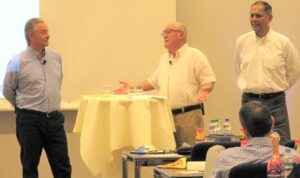
These people are rare. The reason we are who we are today as a business is because of who these people were: Markus and Andreas. Those are the foundation stones of the business we have today.
Going forward, those foundation stones remain so important because the things we are doing today – taking the business forward, leveraging data, collaborating deeply – have roots in the principles they instilled.
It’s worth remembering too that Markus did not have an easy life. He was born with a cleft. I don’t know when he was operated on…
JS: … He had several operations. And that is the reason he had a moustache.
Indeed. And one of the causes we and indeed the whole travel retail community have been heavily involved in down the years is cleft charity Smile Train. I think Markus would quite like that: the fact that this fine organisation funds an incredible ability for a surgeon to transform a face and therefore a life, and the life of the parents.
When I think back to Markus – and I never spoke to him about it – I suspect it shaped him a lot. Because he was determined and very tough as well.
JS: He had all the toughness but a very tender heart because he understood difficulties. He understood what it was like.
He made fun of his disadvantage, but let me tell you a story about him. He came from a family which had a bakery shop in Bern. His father used to tell him, “This is your quarter of bread to sell.”
Markus told me this story all the time, explaining: “My father would say, ‘You don’t come back until you sell every single loaf.’”
What that taught him was perseverance. Markus was the kind of person that no matter how difficult it was, you completed the day only when everything was done fully. No matter how challenging it is, you persevere. And he instilled that in all of us.
It’s difficult, I know, but if you had to pick out one moment through your travel retail journey, what would it be?
JS: Actually, there were two. The first happened in 1999 [with the abolition of intra-European Union duty free], which shook up the industry. For me, that was pivotal because the whole industry in those days was a bit lazy and had taken success for granted.
They felt that this duty barrier created the duty-free industry where the price mechanism by policy was set in place. We all made money as air travel was exploding and that was it {main interview continues after the panel below}.
Saluting an outstanding careerAt The Trinity Forum Gala Dinner in Ho Chi Minh City on 6 November, The Moodie Davitt Report recognised Jaya Singh’s immense influence in travel retail with The Trinity Award for Outstanding Contribution to the Airport Commercial Revenues Sector. Announcing the accolade, The Moodie Davitt Report Founder & Chairman Martin Moodie said: “Our recipient has given tremendous service to our industry on so many levels. As a highly successful executive over more than two decades for his company. As a thoughtful, committed and passionate contributor to industry initiatives and causes. 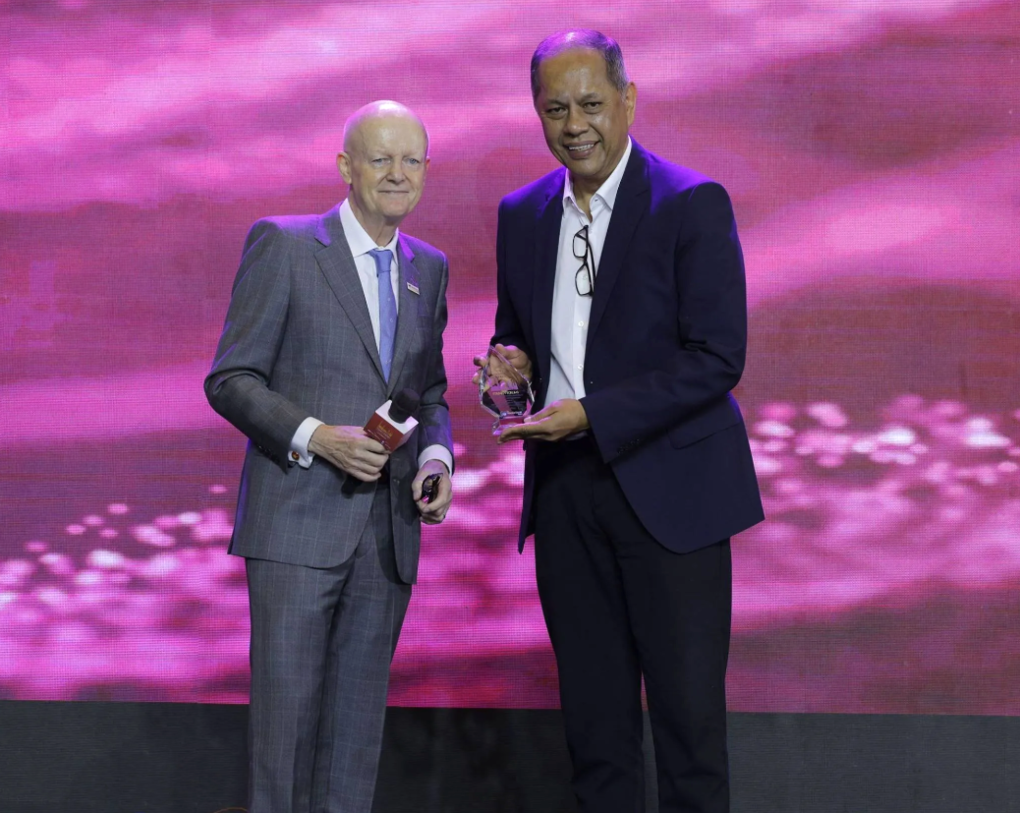 “As a champion of travel retail even at the darkest of times for the channel. As an unrelenting supporter of charitable projects. As a leader of regional and international trade associations. “I was going to say as a fierce advocate for the category he represents but there is nothing fierce about this man, just a quiet but always well-articulated wisdom. “His influence in the evolving Trinity debate over the years both in public and – less-known – behind the scenes has been immense. “I, along with all those who know him in the travel retail community, will miss his contribution greatly. Just as I, in common with so many, have gained so richly from it.” |
But 1999 signified a fundamental change. You were no longer protected by policy or industry standards. You had to innovate. You had to create products, build brands and deliver products in all categories to give travellers a reason to buy.
At the same time, airport authorities began to get really intense about minimum guarantees. So the cost of doing business was increasing exponentially.
Those two things combined showed me to never underestimate the human spirit and its ability to adapt – and to adapt in a progressive manner, driven by unique circumstances where your survival is at stake. That was a good moment for the industry.
And then COVID happened. And with it came the true understanding of what you have today – that you should never take it for granted. US$80 billion worth of industry practically wiped out overnight. The reality of that period was companies who owned brands were asking themselves questions like, “Should we be in this channel?” Some exited.
That was an amazing wake-up call. Those are the economics. But the real takeaway for me was this: nobody is going to stand for you when you are in deep trouble. They will support you, but you have to confront it yourself. You have to understand the solution must come from your own hands.
That’s what confronted me as a pivotal moment, and it’s the reason why I decided to put my hand up for the TFWA Presidency [in 2020]. Because at the end of the day, it’s our industry and we had to do something about it. Nobody else would do it for us and there was a danger we would have lost our relevance.
People were questioning the relevance of being in this industry… there were internal agendas, lots of explaining and presentations. I had jobs and my people to protect.
Thankfully, the company understood that. We had a marginal head cut but they said, “Okay, we stay invested” because we knew this would bounce back.
At the same time, I had the TFWA responsibilities [the 2020 TFWA World Exhibition and TFWA Asia Pacific shows were cancelled due to the pandemic -Ed]. At one point in 2021, when we had so many board meetings at the TFWA level, I said, “We’ve got reserves. Those reserves are meant for a rainy day. And guys, if you haven’t realised it, the rains have come. Don’t put it under your mattress. It’s time to spend it.”
So, we said, “We will.” The show must go on. I said very simply: “The cost of being there would be nothing compared with the cost of not being there.
We had 58% utilisation – so you lose money, right? That was a difficult moment, but I am proud to have been able to serve. It was very humbling, but it was a real privilege to have been part of overcoming such immense difficulties.
You see character emerge from people you never thought had it. You see that, and it humbles you even more, because you should never judge. The true heroes are the people we take for granted – the ordinary staff – because they are the ones who earn the least but are affected the most. But they say, “We’ve got to make this work.”
People sometimes ask me, “Why do you always keep such a low profile?” The answer is I don’t do it intentionally; I’m just grateful for every single little thing I have because of my background. And I know that whatever I have today has been given by God – by his faith, his grace and his mercy. It’s nothing to do with me.
You’re a modest man Jaya. Sorry, but it does have a lot to do with you. So Joost, tell our readers a bit about yourself and what drew you to this role.

Joost Rosmuller (JR): Just to build on what Jaya said, the humility and sense of responsibility that I feel after taking over from such a man who in turn took over from two other visionary leaders – that’s what also attracted me to the role.
But it also makes me nervous. With every single person I’ve met over the past days as Jaya introduced me, the first thing they say is, “Hey, mate, you’ve got big shoes to fill!”
Jaya shared the story he just told you with me some time ago. And it is humbling to hear.
My story is very different. I come from a middle-class background in an area of The Netherlands that was very rich until the 1960s. Coal mining was the main industry and it used to be the richest part of the country. But in the 1960s, it all disappeared. The mines closed, where both my grandfather and father worked.
It’s nothing to compare with your story, Jaya, but let’s just say it wasn’t simple when the economic circumstances changed so dramatically there around the time when I was born.
What I learned early on was use your talents, make the best of things. I have two older sisters who’ve done the same. But I was the only one in my family who could go to university and leave that part of the country.
At 17 I left home to start at university. It was a five-hour journey to the other side of The Netherlands, a strange experience at the time. I didn’t know anyone in that city so I started there with no connections. Now, looking at my kids, who are 19, 22, and 24, you realise the importance of things like that only as you get older.
What it gave me, first of all, was a sense of responsibility – not just for myself, but also for the people I work and live with. When life progresses and you lose dear ones too early along the way, it taught me that adversity is there to be tackled if you choose to face it.
So when this opportunity to lead Mondelez World Travel Retail came, I jumped in with both feet. I had seen what Jaya and the team were doing in the business and it was very impressive. Similar to the conversations Jaya had during Covid, we’ve been having those kinds of discussions over the past months on the back of the cocoa [price increase] development.
Together, with our shared sense of responsibility, we’ve convinced people internally about how to move forward into 2025. We’ve gotten internal agreement to do things that, in my 30 years of experience, I’ve never been able to do, all with a sense of responsibility and long term vision for the industry.
This is possible because there is strong confidence in Jaya, first of all, and there is strong confidence in the business itself and its potential.
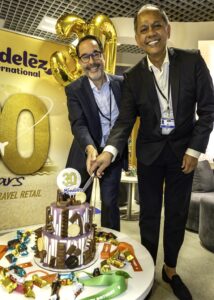
That’s a key subject to which I will return in a moment. But first take us back to your history with the group.
JR: I joined the group in 2008. I started my career in 1995 with Unilever in Benelux. After nine years, I moved to LEGO as the Marketing Director for Nordic and Benelux, also becoming General Manager for Belgium and Luxembourg. Then, I moved on to Cadbury [acquired by Kraft Foods in 2010]. I left Cadbury to join Kraft Foods, which eventually became Mondelez.
My father always told me: “You should start your own business.” And so, even as a student, I always had a small business on the side, which paid for my studies. That sense of ownership has stuck with me. Whatever job I take, I always treat it as if it’s my own business. And honestly, this business feels very close to that idea of having your own business.
Of course, there’s the corporate structure, but I approach it with that mindset. It’s also tied to a sense of responsibility: to move the business forward, for the people who will lead it after me, our successors.
This isn’t just about financials, though they are important. It’s about making the future better for the teams, the industry, and carrying on a business as if it’s almost a family business.
When I joined LEGO, it was during a time of deep trouble for the company. But we turned it around. One thing I learned from that experience is that if you have the right strategy, the confidence and the backing of the team, you can achieve anything.
That same dynamic is happening now as happened during COVID and even back in 1999. That’s why, even though I’ve only been here a few months, I feel a deep appreciation for this business and its people.
This week [in Cannes], I’ve been amazed by the collaborative spirit. Everyone told me about it before, but you only truly realise it when you’re here. Of course, we’ve had difficult discussions, but they’re always with the end goal in mind – thinking about where we want to go in 2025, 2026 or 2027.
The conversations we’ve had with partners and colleagues here in Cannes are incredible. After spending 30 years in domestic roles, I see how much more power this industry has to truly make things happen.
When you partner with a domestic retailer, you sometimes realise that their vision of partnership is different from yours. Here it’s different. The openness and willingness to collaborate are amazing, and it’s new to me.
My beloved All Blacks rugby team always say when you wear the jersey, it’s not about you – it’s about how you leave the jersey for the next player. It’s quite similar here. You’ve got this amazing lineage of leaders and now you’re becoming part of that sequence.
JS: I’ve always said to Joost, and I’ve told a lot of people, that I would never leave this business. And while I couldn’t fully articulate why before, now I know. I sensed it in my spirit.
The business arguments [for travel retail] are clear, but it’s the people, the EQ, the X-factor. I can sense it immediately. And now, seeing how Joost has brought fresh energy to the team, I’m even more convinced that this business is in wonderful hands.
Joost, you’re coming in at a very interesting time, to say the least. Let’s talk about 2025 and the hike in cocoa prices you mentioned earlier. It’s right up there with the mega-challenges travel retail has faced down the years. A different kind of challenge, but still a profound one.
So before we get into specifics, how do you view the state of the nation, as it were, for the travel retail channel as a whole – and for confectionery within it?
JR: First of all, it’s amazing to hear that just one out of five travellers are shoppers. That means we’ve got roughly 20% penetration, depending on location and other factors. But it also means 80% of travellers don’t shop – they just move on to the gate.
One out of 17 travellers buys a product from the confectionery category. Coming from a domestic background, this is surprising to me. There, you have 99.99% distribution, brands with 60-80% penetration, and shopping frequencies of five to seven times a year, if not more.
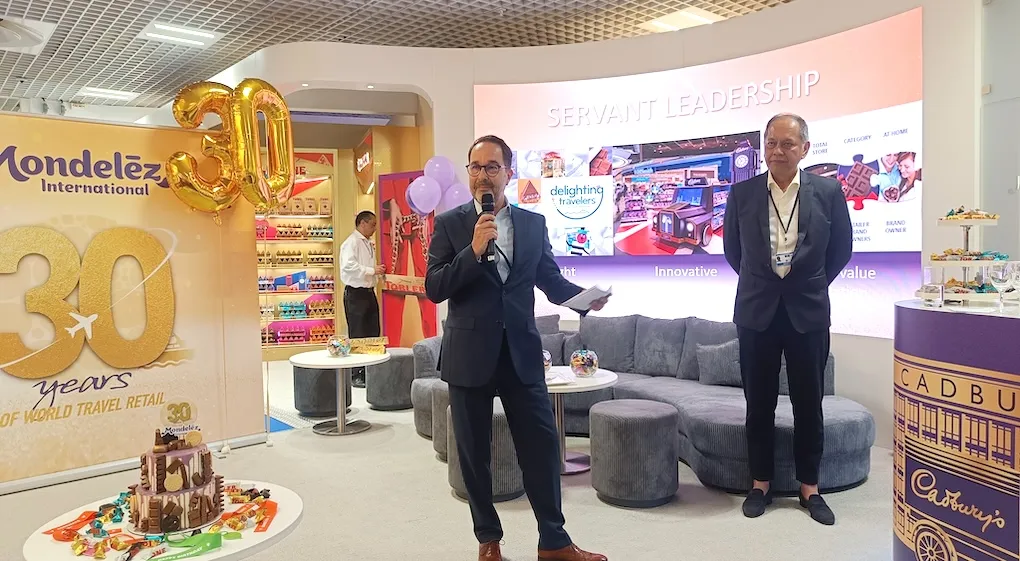
So there is a tremendous opportunity as an industry, but within the context of a different operating model and a different value chain, which is the context we have to operate in – one which gives everybody their share of the value. But coming into an industry with that potential and that scale is amazing.
I do think as an industry we are challenged, depending again on geography. What we’ve heard across categories from partners is that shoppers are concerned about price. They’ve seen inflation domestically.
So what is the role of travel retail? Shoppers may think it’s too expensive… I think this is true. The industry evolved from “You could get a good deal because it was tax free,” to “You could get some good deals because some stuff was actually still tax free,” to a situation where, especially in Europe, that kind of disappeared.
Maybe the 80% who are not shopping, or some of them, are saying, “It’s damn expensive.” Here I come into Zurich Airport or JFK – very nice, but super expensive. So while that sounds negative, I think it’s also an enormous opportunity because given the one out of five who are shopping, the one out of 17 buying confectionery – if we do the right things as an industry, we can grow.
It starts with differentiation. We’ve been at the forefront of this, with personalisation or exclusive SKUs. It starts with the experience – everything you’ve heard and seen from us across the years.
If I go to the cocoa challenge, which is something everyone is affected by in our industry — cocoa historically being around £2,000-3,000 per tonne over the summer went to £11,000 briefly.
We were looking at the internet and saying, “Oh, where does this stop?” It’s come down a bit because of a combination of exceptional circumstances: disease in the crop, bad weather, shortage, but also speculation. Investors speculating with food, which should be forbidden.
So this is exceptional. Talking to our teams internally – and we’re among the biggest cocoa buyers on the planet – they are confident that it’s transitory. It will go down. They don’t know to what level but it should normalise by 2026.
I’m not saying it isn’t an issue, but it is largely transitory. When we look back 30 years, or if you look forward 30 years, this may have been a blip. Still, we took it super seriously, and we’ve got a plan with differentiated formats and activations, and we’re very confident about the impact of that. We’ve tested and learned and we are sharing data.
So it’s a difficult moment for me to step in, because I have little knowledge of travel retail compared to Jaya. But I think it’s a great opportunity for me to learn and develop, especially within a sector that despite 30 years in the industry I didn’t really know.
And actually we have great confidence in next year. Honestly, I think we’ll do really well. We have full confidence.
So will we see a much greater push into exclusive products?
JR: Absolutely. We’ve been having those conversations with the Global Equity Team in Mondelēz International and the CMO about what’s next. How can we differentiate further – different offers and flavours, small runs that are exclusive products, different pack structures and SKUs?
It’ll take some time, but that’s absolutely where we need to go. There are wonderful things you can do with packaging, with flavours, with personalisation. And while we’ve been leading this, I think the industry, fortunately, has caught up a bit. Now is the time for us all to accelerate.
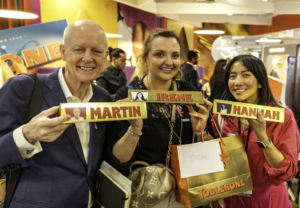
One out of two travellers actually mentions that they want to see, find and buy different things. There are small differences and big differences, right? But what they mean is truly ‘different’.
Just putting ‘travel retail-exclusive’ on the pack doesn’t do anything. It’s about offering something unique. Whether it’s in Copenhagen, Australia, Dubai or Qatar, it’s the shopper’s way of saying, “Ah, look where I was” and showcasing that experience. ‘Travel retail-exclusive’ may be more industry language than shopper language but in essence we mean the same thing.
I guess the fact you were able to lay out a plan like this for 2025 shows that internally travel retail remains very much in favour at Mondelez. Obviously, compared to a fragrance or beauty house, it’s a much smaller percentage of your overall business. Describe how highly the company values this channel.
JR: It’s actually a top priority. I’m not saying this as corporate fluff; it genuinely is. When I say we’re talking to the CMO, I mean we’re literally having conversations with him about travel retail specifically. He’s managing a US$36 billion business, but he wants to hear about travel retail.
Why? First of all, because it’s an interesting and growing business. But more importantly, what we can do with our brands here is unparalleled; it’s something you can’t replicate anywhere else.
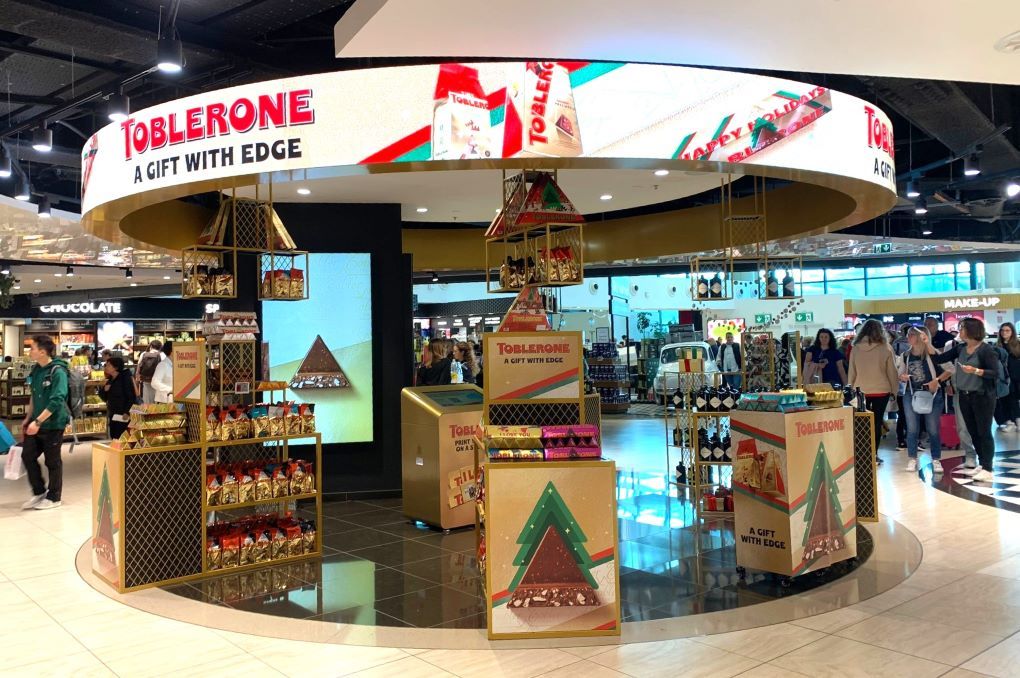
They [our leadership] are looking at what we’re doing with Toblerone, with Cadbury and everything we’ve discussed – differentiation, personalisation, premiumisation. They want to push that further. They also want to learn.
In a fast-moving US$36 billion company, you have strong brands that rotate very quickly. You’re not necessarily operating in niches. But the company is clearly prioritising premium chocolate and the unique ways we bring our brands to life here.
Take the Oreo Café in Doha [with Qatar Duty Free at Hamad International Airport], for example. They’re amazed by it. They’re asking, “How did you guys do that?” It’s a 3D brand experience that’s also profitable. So, yes, travel retail might be a smaller percentage of the overall business, but it serves as a strategic example of our Vision 2030 pillars and is incredibly valuable.
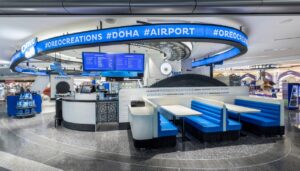
Let’s talk about the collaboration necessary to deliver those plans next year. Jaya, you’ve championed the Trinity principles over many years both publicly and behind the scenes. From my perspective as the founder of The Trinity Forum, it’s sometimes been a lonely battle, because some things remain very much the same as when I created the event in 2003.
And then out of the blue, along came COVID when people were forced to work more closely together simply to survive. Do you feel the pandemic has accelerated genuine collaboration across the industry?
JS: That’s a very good question. In fact, one of the positive outcomes of COVID was that it demonstrated just how interdependent the three stakeholders – airports, retailers and brands – are, to a depth and scope we never fully realised before. Out of necessity, a willingness to collaborate emerged.
Airport authorities with demanding contracts started to realise that the only way for incumbent retailers to survive was to waive or renegotiate those obligations. No income means no guarantees. Post-COVID, airports needed retailers to stay, and that realisation sparked real collaboration.
The question is: do we always need a crisis to bring about that level of collaboration? That’s what I wonder, Martin.
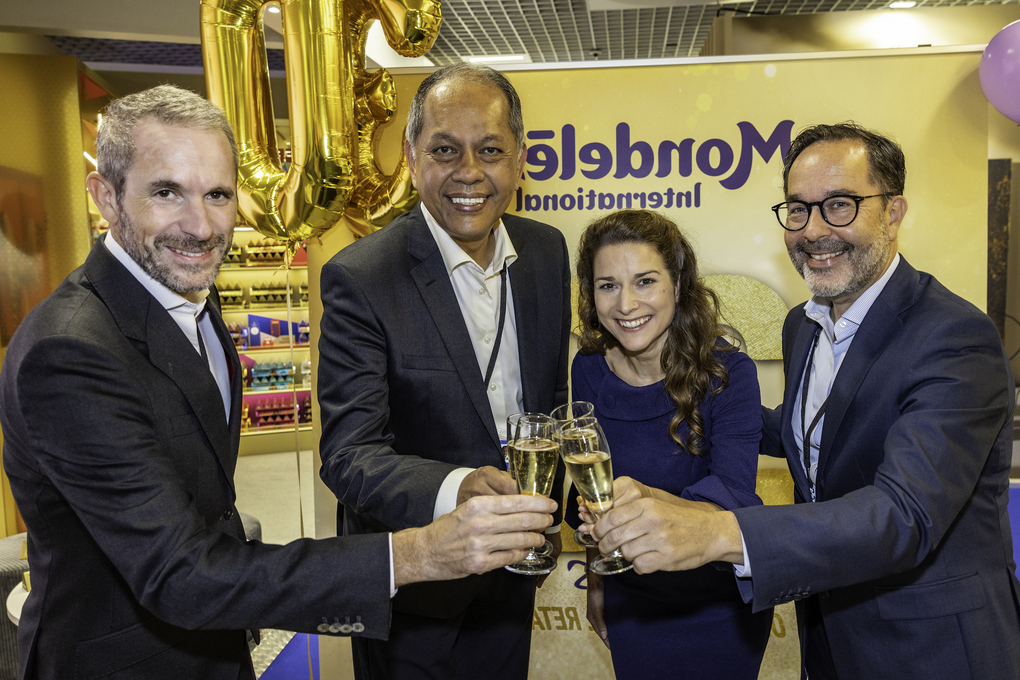
Another positive outcome was a willingness to try new models. For example, I know of cases where stakeholders moved toward profit-sharing relationships. Suddenly, it wasn’t in anyone’s interest to have a fixed 40% minimum guarantee, which becomes a fixed income for the landlord but a guillotine for the retailer. Instead, there’s room to create variable components that align everyone’s interests.
What’s been missing in the Trinity historically is the realisation of common ground. It’s always been about ‘my ground as a landlord’, ‘my ground as a retailer’ or ‘my ground as a brand owner’. The key is finding and operating on that common ground.
So yes, I feel confident. The conversations we started years ago weren’t fruitless. Change is a slow process, but I’m convinced we’ll eventually see that shift.
And we’re already seeing it. I think of two recent standout interviews I conducted this year with Lagardère Travel Retail Chairman & CEO Dag Rasmussen and L’Oréal Travel Retail President Emmanuel Goulin. Dag, in particular, highlighted the win/win profit-sharing model that is working for progressive stakeholders.
JS: Exactly. That’s what will move the needle – the leaders leading the way. And Martin, you were visionary in starting this Trinity conversation. But for it to work, you need belief at the very top levels of all three stakeholders. That’s the other thing you initiated, bringing CEOs and Chairmen into the room.
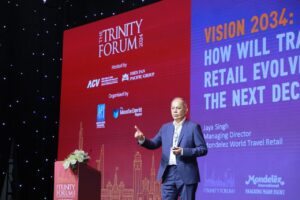
Joost, as the new incumbent, what’s your closing message for the trade about your company and your vision for the future?
JR: Honestly, it’s all about partnership. What I’ve seen over the past few days is a genuine willingness to partner – something proven during difficult times like COVID. This partnership will be critical in unlocking the potential offered by the current level of only 20% penetration.
I think we’ve done super things through good and bad times, and the Mondelez team will continue to be there to be at the forefront of such collaboration. That’s my message: a continuation of the work Jaya, Andreas and Markus have done before. ✈
